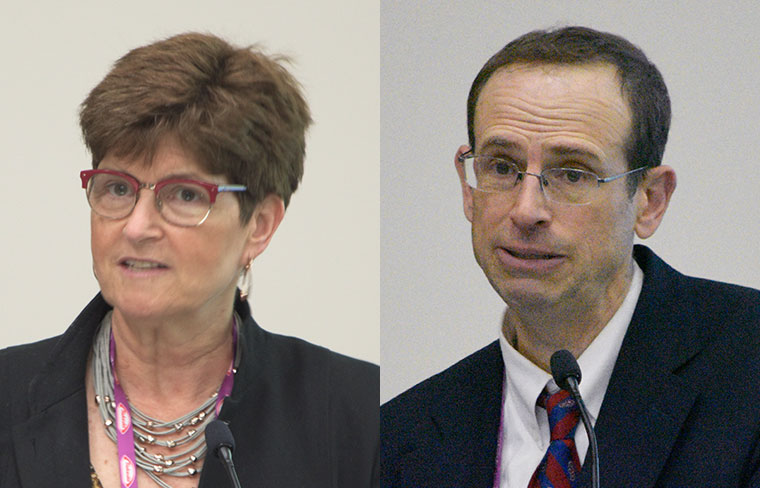
Speakers identified the key components and predictors of physician burnout and offered practical ways that physicians can balance their family and personal lives alongside a professional career in gastroenterology in the AGA symposium Balancing Work and Life While Avoiding Burnout in Gastroenterology on Sunday afternoon. They also addressed strategies institutions can implement to help physicians prevent burnout.
Carol A. Burke, MD, AGAF, FACG, FASGE, FACP, of the Cleveland Clinic, OH, opened the symposium with a discussion on burnout at the individual level and how it impacts clinical practice.
“Burnout is a reaction to chronic stress and, in this context, it’s a work-related syndrome that is characterized by a low sense of personal accomplishment, emotional exhaustion and depersonalization to the point that when you walk into the room, you find nothing that is enjoyable or engages you with the patient,” Dr. Burke said. “In the professional setting, it can lead to disruptive behavior, decreased productivity, disengagement of the physician as well as the staff, and a decrease in patient satisfaction.”
Additionally, she noted, it’s important to understand and consider the biologic implications of sustained and excess stress, which include lifestyle diseases such as hypertension, osteoporosis, immunosuppression, insulin resistance, dyslipidemia, cardiovascular disease, depression, anxiety and even death.
Dr. Burke said that improved lifestyle strategies, such as regular exercise, a nutritious diet, mindfulness practices and good sleep patterns can help to reduce the impact of stress and decrease the chances of burnout. In the practice setting, she said things like virtual visits, shared medical appointments, working flex hours and engaging a medical scribe can help to reduce the work burden, and ultimately, reduce stress and improve job satisfaction.

For employed physicians working in a large organization or institutional setting, the strategies for avoiding burnout can often be more challenging, as much of the work-related stressors are out of the physician’s control, according to Joseph C. Anderson, MD, MHCDS, FACG, of the Dartmouth College Geisel School of Medicine, Hanover, NH, who discussed the impact of burnout at an institutional level.
Organizational drivers of burnout, he said, can include excessive workloads, inefficient work processes, clerical burdens, a lack of input or control on practice issues and a misalignment of values between providers and leadership.
“There are reasons why studies have shown that gastroenterologists are at higher risk for burnout compared to other internal medicine subspecialties,” Dr. Anderson said. “We’re procedurally-oriented and we have a learning curve, which is difficult, and our job can be physically taxing. We have a heavy clinical burden, which has gotten worse with the demise of the internist, and we’re often engaged in procedures when the leaders of our departments, who are often not gastroenterologists, are having meetings and deciding our fate.”
Among the potential remedies for institutional burnout, he said, is the adoption of the team-based care model, which includes increasing the ratio of medical assistants to physicians to provide enhanced clerical and administrative support and allow the physician to focus solely on clinical work. A recent study suggested that strategy alone could reduce the incidence of burnout by up to 50%.
While Dr. Anderson believes it is incumbent upon institutions and organizations to include physician satisfaction and well-being as quality indicators, he said it is also up to physicians — individually and as a group — to affect change where they can.
“Ultimately, we have to take care of ourselves,” he said. “You have to know yourself and whether or not something is the right fit. And we also have to be prepared to act collectively for more leverage.”




One Response
For those of us who have sold our practices to hospitals and find ourselves on the streets at the time of second contract signing the burden of returning to any form of practice can be daunting if not impossible. It has become common place and hospitals frequently contort the story blaming the physician. They simply replace the older, more costly physician with younger, cheaper help. For some of us the hospital staff comprises the overwhelming portion of our social structure. Hospitals then do more damage by forcing employees to isolate the physician and prohibit contact. It ultimately becomes a cruel and emotionally devastating process fir which these institutions should be held accountable. Having just experienced this myself, my heart goes out to others in the same position.